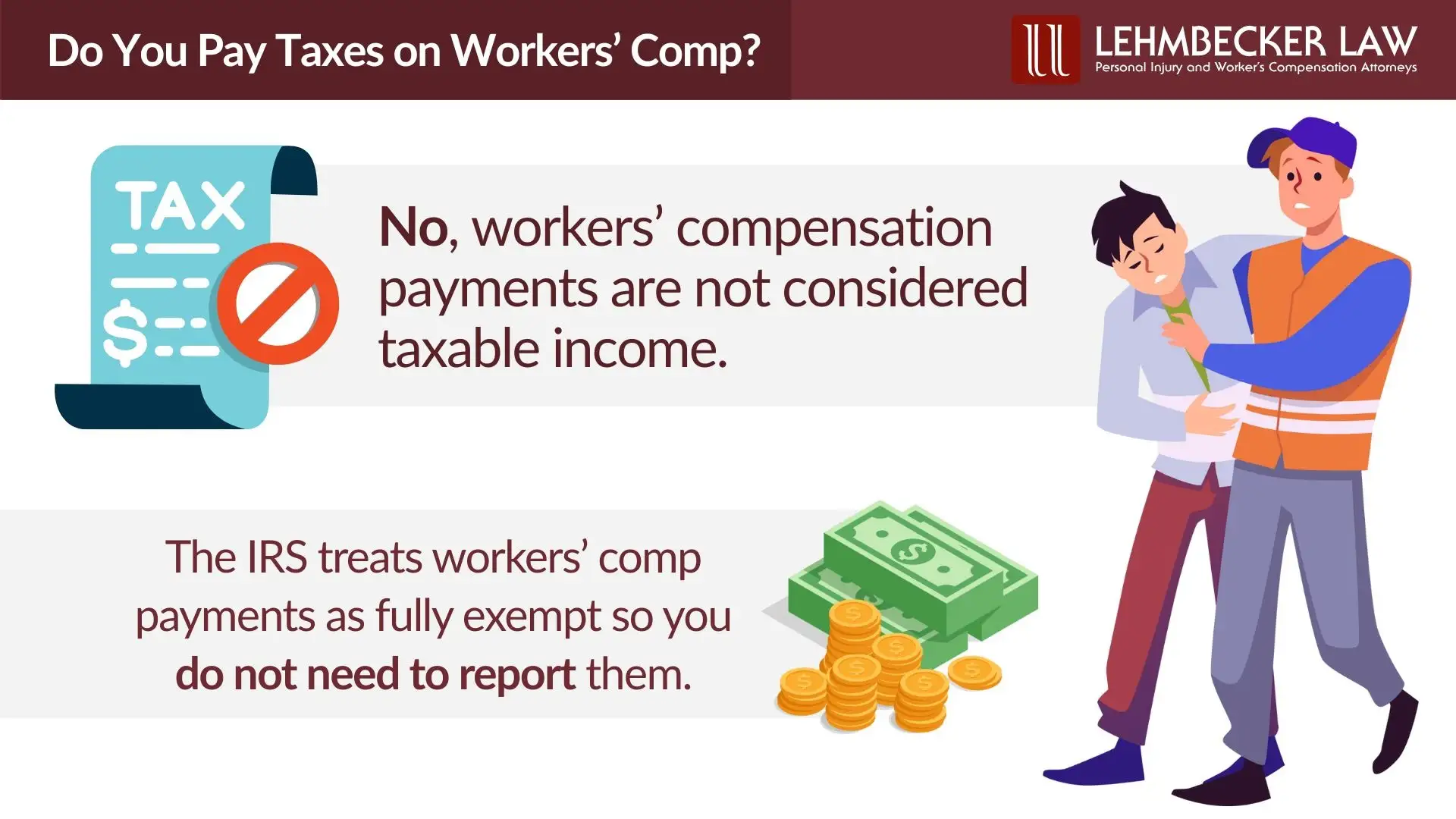There is no fee unless we win!
EN

- EN
- ES


If you've been injured on the job, you're probably juggling more than just doctor’s appointments. You’re also dealing with paperwork and time away from work. A big question that might arise is, do you claim the workers’ comp wage benefits you receive on your taxes? In most cases, the answer is no. Workers’ compensation benefits are generally not considered taxable income and are not subject to federal or state income taxes. However, there are a few specific circumstances where some of those benefits might be taxed. Here's how it works.
Workers’ compensation is a type of insurance employers are required to carry. It’s there to help employees recover from a workplace injury or illness. If you’re hurt on the job, this coverage can pay for medical expenses, lost wages, rehabilitation costs, and ongoing care if needed.
In cases where the employee died as a result of a work incident, workers’ comp provides death benefits for the worker’s family and dependents.
If you haven’t yet started the claim process, make sure to review how to file a workers’ comp claim in Washington State.

Workers’ compensation payments aren’t considered taxable income. That means you don’t need to report them on your state or federal tax return. The IRS treats workers' comp as fully exempt when paid under a workers' compensation act due to an occupational injury or work-related illness. This exemption applies universally regardless of whether payments are distributed periodically (weekly or biweekly) or as a single lump-sum settlement.
So, if you’re just receiving workers' comp payments after a workplace accident and nothing else, no tax report is required.
There are some situations where things get tricky. Making mistakes while on benefits, such as taking unapproved work or failing to report income, can jeopardize your claim and have tax consequences.
Workers’ compensation wage benefits, by themselves, are not taxable. However, there are some circumstances where you may have to pay taxes on other benefits you’re receiving while on comp:
Receiving both workers' compensation and SSDI or SSI may affect your tax situation.
If your combined benefits from workers' comp and SSDI or SSI exceed 80% of what you earned before your disability, you may face what's known as an "offset". This means a portion of your benefits may be taxable.
To figure out if you'll owe taxes on your Social Security benefits, add half of your total Social Security benefits to all your other income. You might owe taxes if this sum exceeds your base amount of:
If this is the case for you, the IRS will tax your entire Social Security benefit eligibility amount, not just what lands in your bank account after any workers' comp reduction.
If you're doing light-duty work while still on workers’ comp, the wages you earn from that job are taxable, even though the workers’ comp payments are not.

If you received a workers’ comp settlement and then invested it, any interest or dividends earned on that investment are considered income, and that income is taxable.
So, if your only source of income is workers' comp, you don’t need to file a tax return. If you also earned income elsewhere during the same tax year — through light-duty work, another job, or benefits like SSDI — you will still get a W-2 form showing the taxable income you were paid.
Yes, workers’ compensation insurance premiums are tax-deductible for employers. The IRS generally classifies these premiums as a legitimate business expense, which means employers can deduct them when filing their federal taxes.
This deduction applies as long as the insurance is used to cover employees for workplace injuries or illnesses. It does not apply to personal coverage or to policies that are not directly tied to employee protection. Additionally, the deduction only applies to the cost of the insurance premiums, not to any reimbursements or payouts made directly to injured workers.
Employers should maintain detailed records of all premium payments made throughout the year to support the deduction during tax preparation. This helps ensure compliance and simplifies documentation in case of an audit.
So, do you claim workers' comp on taxes? The easy answer is no. Workers' comp benefits are not taxed, making them a vital lifeline for those recovering from an injury or work-related illness.
However, things can get complicated quickly when SSDI, SSI, light-duty wages, or investment income are involved. That’s why it’s essential to speak with a qualified attorney.
Our Seattle workers’ comp lawyers at Lehmbecker Law have helped countless injured workers across Washington secure the workers' compensation benefits they’re entitled to — and are ready to help you do the same. Contact us today for a free consultation and let our attorneys handle your claim from start to finish.

Don’t let confusion or delays stand in the way of your recovery. Lehmbecker Law can help you file a claim, appeal if necessary, and fight for full workers’ compensation in Washington State.